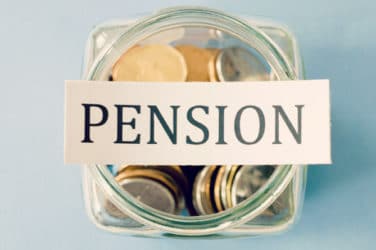
Capitalization weighted indexes are not a good representation of the broad market because they don’t take into account all stocks in the index, Stephen Hammers, chief investment officer at Compass EMP.
“There’s a lot of indexes out there that are either cap weighted or fundamental weighted, which means they puts a lot of weighting towards a few stocks,” Hammers said. “If you look at the S&P 500 ending 2013, it had $116 billion market cap on average, but only 36 stocks were above $100 billion. It’s a very, very skewed index and it’s not a very efficient index.”
Compass EMP launched three ETFs on July 2 based on the CEMP U.S. Large Cap 500 Volatility Weighted Index, CEMPU.S. Large Cap 500 Long/Cash Volatility Weighted Index., and CEMP U.S. Large Cap High Dividend 100 Long/Cash Volatility Weighted Index. It plans to release two more ETFs in the coming months.
The S&P 500 is up 78% since September of 2000 at the beginning of a bear market. The CEMP US large cap 500 volatility weighted index is up 268% over the same period. “It’s a significant difference,” Hammers said. “It’s four times greater return, but it’s actually a little bit less risk because it’s a better representation of the broader market.”
“These ETFs will combine Smart Beta methodologies with the ability to minimize draw down risk by strategically moving to cash,” said Hammers. “The two enhanced ETFs have the ability to liquidate 75% of the securities to cash.”
Hammers is the creator of the CEMP Volatility Weighted Indexes and manages 19 total mutual funds and ETFs, and has $1.6 billion in assets under management.
The volatility-weighted approach equally weights each holding based on its risk contribution to the portfolio (using standard deviation), not market cap. Risk/volatility is spread out equally throughout the portfolio, so one stock can’t dominate a portfolio.
“The largest benefit of the CEMP volatility weighted indexes is that it puts all stocks that make money– and that’s part of the criteria, they’ve got to have four quarters of profitability– on the same playing field because it weights all those 500 stocks based on their volatility, not based on their market cap or based on how much money they made or how much dividend they have.”
The top 50 market cap stocks in the S&P 500 Index are not a true reflection of the broad market because they do not reflect the performance of all large cap stocks yet those stocks are a majorty of the S&P 500’s return.
“Clorox is in the S&P 500, but it has no contribution whatsoever,” Hammers said. “But because Apple has considerably more contribution than what Clorox does, that’s not a market. It makes volatility weighting far more productive.”
Compass EMP is seeing strong demand for the ETFs. “We’ve already seen about 30,000 shares a day traded since it started,” Hammer said. “We’ve had a lot of institutions contact us because it’s quite a bit different than cap weighting and fundamental weighting. People understand that what we are doing is taking the risk of all stocks in the market and you’re equalizing. Your higher risk stocks have the same impact as your lower risk stocks and everywhere in between. That’s where the significant benefit comes from.”
Hammers was speaking at a conference recently and asked the audience, “When was the last lost decade in the stock market?” Most people said 2000-2010. “I said, “No, it was the Great Depression. We’ve not had a lost decade since.’ The 2000-2010 downturn was only the S&P 500 and all the funds that hug it. That was a technology-driven bear market and that wasn’t the broader stock market.”
Feature image via Thep Urai/Dollar Photo Club






